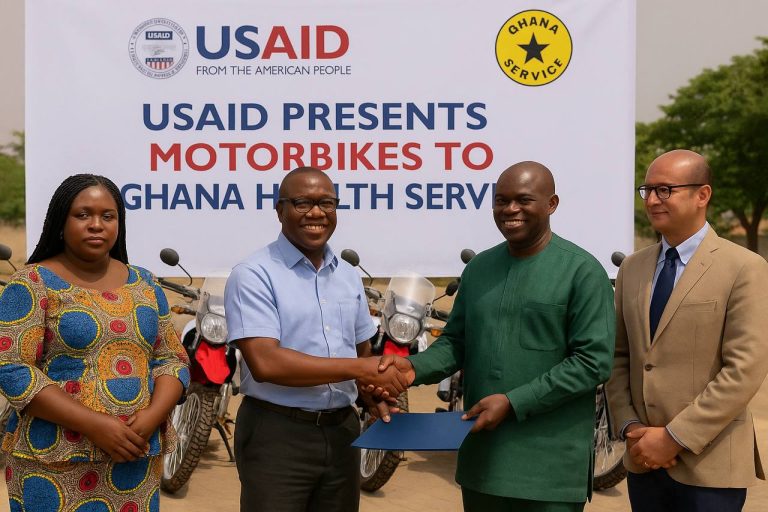In a significant boost to Ghana’s healthcare delivery efforts, the United States Agency for International Development (USAID) has handed over 104 motorbikes to the Ghana Health Service (GHS) and the Christian Health Association of Ghana (CHAG). This initiative aims to bridge the healthcare access gap for remote and underserved communities across the country.
The donation, which forms part of USAID’s broader health systems strengthening agenda in Ghana, is expected to improve the mobility of frontline health workers, particularly in hard-to-reach areas. These motorbikes will enable health professionals to deliver timely and essential health services such as maternal care, immunizations, disease surveillance, and emergency response.
In rural Ghana, accessing healthcare can mean walking several miles on footpaths and over rugged terrain. This logistical challenge has long been a barrier for many in seeking timely medical attention. According to the Ghana Health Service, a considerable number of preventable deaths in remote communities can be linked to delayed or inaccessible care.
“Mobility is one of the major challenges for our health workforce, especially in rural districts,” said Dr. Patrick Kuma-Aboagye, Director-General of the Ghana Health Service, during the handover ceremony. “These motorbikes will empower our community health nurses and officers to reach more people faster and save more lives.”
The motorbikes are not just vehicles, they are lifelines for hundreds of communities. In places where roads are non-existent or in poor condition, especially during the rainy season, they allow health workers to travel efficiently between villages.
Reverend Dr. Peter Yeboah, Executive Director of CHAG, expressed deep appreciation for the support, noting that the motorbikes will significantly strengthen their outreach and public health response efforts.
“Our workers serve in some of the most deprived parts of Ghana,” Dr. Yeboah said. “With these bikes, they can now offer continuous care, monitor child and maternal health, conduct vaccinations, and respond quickly during health emergencies.”
As Ghana continues to work toward improving health infrastructure and coverage, partnerships like the one between USAID, GHS, and CHAG provide critical support. While more investments are still needed in roads, medical supplies, and training, this initiative marks an important step in enhancing the reach and responsiveness of Ghana’s primary healthcare system.
The road to equitable healthcare is long and winding but with 104 new wheels in motion, hope now travels faster and farther

